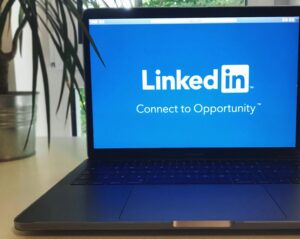A strong letter of recommendation can be a game-changer for your college, graduate school, scholarship, or job application. It adds credibility, showcases your strengths from someone else’s perspective, and can tip the decision in your favor.
But here’s the catch: getting a great recommendation is not automatic. Many students and professionals unknowingly make mistakes that lead to weak, generic, or even damaging letters.
To make sure you get a glowing letter that truly helps you stand out, here are the Top 7 Mistakes to Avoid When Requesting a Letter of Recommendation — plus what to do instead!
Why Letters of Recommendation Matter
- Third-Party Validation: It’s one thing for you to say you’re hardworking — it’s much more powerful when someone respected says it for you.
- Adds Depth: A good letter provides insights into your character, work ethic, and potential.
- Tips the Scale: In competitive applications, strong letters can differentiate you from candidates with similar grades, test scores, or resumes.
- Signals Professionalism: How you request and handle recommendation letters shows your maturity and organizational skills.
The Top 7 Mistakes (and How to Avoid Them)
1. Waiting Until the Last Minute
The Mistake:
Asking a professor, employer, or mentor for a recommendation a few days before the deadline.
Why It’s a Problem:
- It pressures your recommender.
- You risk getting a rushed, generic letter.
- Some may even decline due to lack of time.
What to Do Instead:
- Ask at least 4–6 weeks before the deadline.
- Early requests show respect and professionalism.
2. Choosing the Wrong Recommender
The Mistake:
Picking someone just because they have a fancy title (like a Dean or CEO), even if they barely know you.
Why It’s a Problem:
- Personalized, detailed letters are better than generic ones from high-ranking people.
- Universities and employers can spot “surface-level” letters instantly.
What to Do Instead:
- Choose someone who knows your work and character well.
- Ideal recommenders: professors, direct supervisors, project mentors, or research advisors.
3. Not Providing Enough Context
The Mistake:
Simply saying, “Can you write me a recommendation?” without explaining what it’s for.
Why It’s a Problem:
- The recommender won’t know what qualities or skills to emphasize.
- The letter might miss key points important for that specific opportunity.
What to Do Instead:
- Share your resume, details about the program/job, and why you’re applying.
- Highlight specific skills or achievements you’d like them to mention.
4. Being Too Vague or Informal
The Mistake:
Sending a casual text or email like, “Hey, need a rec letter, thanks!”
Why It’s a Problem:
- It feels disrespectful and unprofessional.
- Reduces your chances of getting a thoughtful, serious letter.
What to Do Instead:
- Craft a polite, formal request via email or in person.
- Example: “Dear Professor [Name], I hope you’re doing well. I’m applying to [Program/Job] and was wondering if you would be willing to write a strong letter of recommendation on my behalf.”
5. Ignoring Deadlines and Follow-ups
The Mistake:
Failing to remind your recommender about deadlines, assuming they’ll remember.
Why It’s a Problem:
- They may have multiple letters to write.
- They could forget, resulting in missed deadlines.
What to Do Instead:
- Send polite reminders 1–2 weeks before the deadline.
- Always confirm once the letter is submitted.
6. Not Waiving Your Right to See the Letter
The Mistake:
Choosing to retain the right to read the recommendation.
Why It’s a Problem:
- Admissions committees value confidentiality.
- Waiving your right makes the letter seem more honest and credible.
What to Do Instead:
- Always waive your right to see the letter unless there’s a very strong reason not to.
- It shows you trust your recommender and the process.
7. Forgetting to Say Thank You
The Mistake:
Not properly thanking your recommender after they’ve taken time to write for you.
Why It’s a Problem:
- It appears ungrateful and unprofessional.
- Burns bridges for future opportunities.
What to Do Instead:
- Send a sincere thank-you email or handwritten note after submission.
- Keep them updated on the outcome (e.g., “I got into the program! Thank you again for your support!”)
Conclusion
Getting a strong letter of recommendation isn’t just about asking — it’s about asking the right way. By avoiding these common mistakes and treating the process with care, you greatly increase your chances of receiving a recommendation that will genuinely strengthen your application.
Remember, a great letter reflects not just your qualifications, but your professionalism, gratitude, and foresight as well. Take the time to plan ahead, choose wisely, and communicate thoughtfully. It’s worth the effort!
Key Takeaways and Fun Facts
- Start early — 4–6 weeks in advance is ideal.
- Pick recommenders who know you well, not just those with big titles.
- Always provide context and your resume when requesting.
- Waive your right to see the letter to boost credibility.
- Follow up respectfully and never forget to say thank you.
Fun Fact:
According to a survey by the National Association for College Admission Counseling, letters of recommendation rank higher than extracurricular activities and even interviews in importance for admissions officers!











Leave a Reply